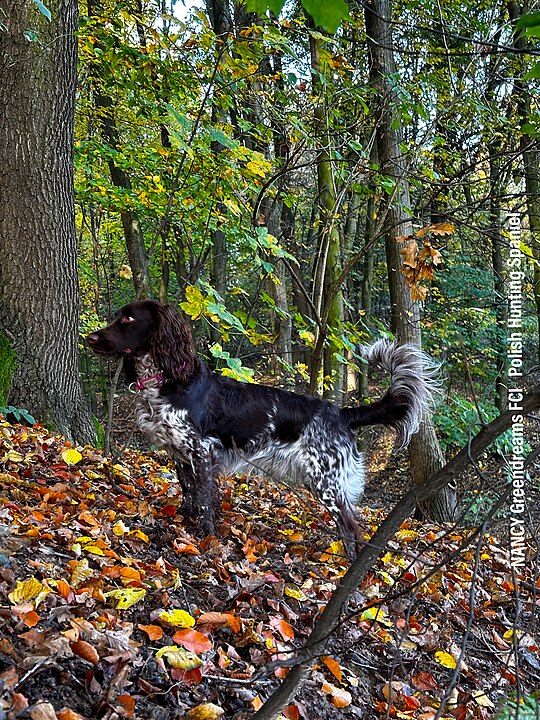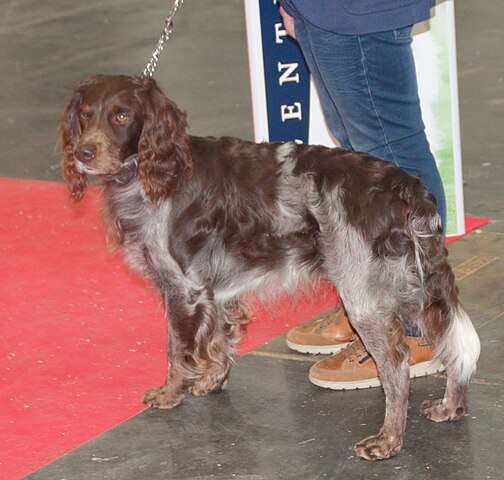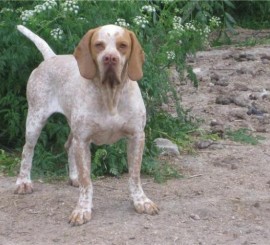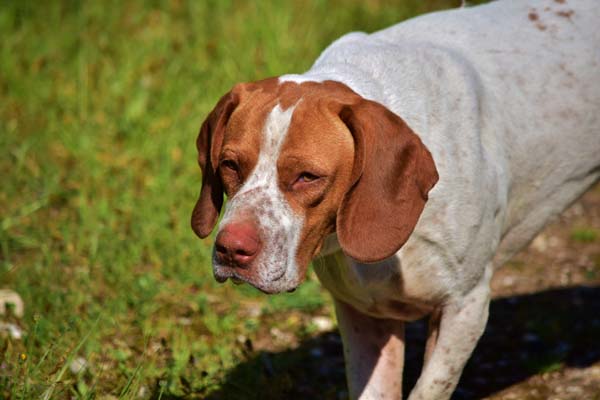The Nova Scotia Duck Tolling Retriever was bred to mimic the actions that foxes take when they hunt birds. What does this mean, exactly? Wild foxes that live near bodies of water will naturally dash about, play, and act silly with the intent of enticing curious birds to come a little closer. When the birds get close enough, the foxes grab them! Hunters in Nova Scotia noticed this and wanted to breed a dog that could do the same thing, with the exception of retrieving the birds (after the hunters shot them), rather than the dogs killing the birds themselves. Although this all sounds like a story born out of a fairy tale, it is entirely true!
Although they might look like small Golden Retrievers, Tollers (as they are affectionately known) have an entirely different temperament. Reserved and somewhat more cautious than the Golden, it is only once they warm up to a new person that they will start to show their playful side. They should never be outright shy. A normal Toller personality is stable, as well as happy without being exuberant. Once they are comfortable in their environment, they often become the life of the party!
They are smart dogs and may require their trainer to keep up with them! Although very attentive, they do tend to get bored with “the same old training routine” and do better when the trainer mixes it up a bit. That said, they are one of the easier breeds to get motivated. Compared to dogs that are only food-motivated, or only toy-motivated, most Tollers will work for anything! The breed is also sensitive, meaning they do not learn well when too much force is used in training. Tollers can be trained to compete in many different competitions, including conformation, retriever tests and trials, canine good citizen, coursing, tracking, agility, dock diving, flyball, obedience, and rally. Because they are a breed that loves trying new things, especially activities with their owners, Tollers would love for you to try them all!
Tollers make great dogs for hunters, but they are equally as rewarding for families who are able to fulfill their natural needs in other ways. For those individuals who don’t plan on taking their dog out hunting, they can still make their Toller happy by playing fetch in the backyard or taking their dog swimming at the lake! This is a breed that loves to go on road trips and explore new things. He is the perfect hiking companion! Providing both mental and physical stimulation is a “must” for this breed. His energy needs to be channeled into appropriate outlets so that he doesn’t become destructive (and if he is bored… he will). The Toller is considered to be a med-high energy dog and, although not hyperactive, does best with an active owner. At night, after he has been thoroughly exercised, he will gladly sit with you on the couch to watch tv.
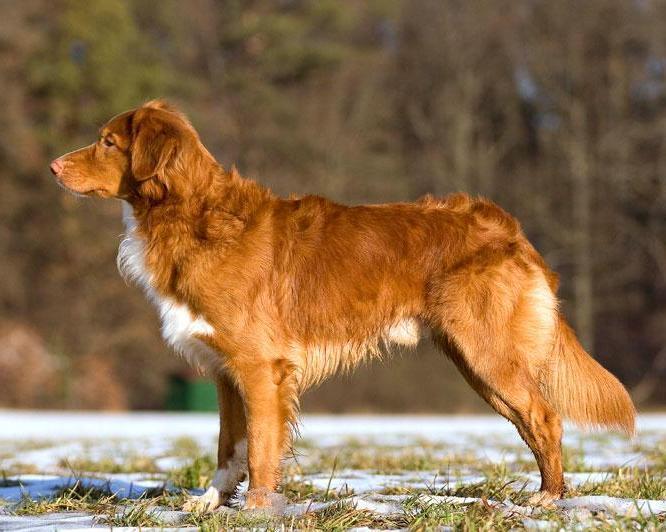 The Toller normally gets along very well with other pets, and is rarely aggressive even to strange dogs. Although they may chase the family cat from time to time, it is almost always as a game and they do not normally do so with the intent to hurt or kill. Tollers also do well with children, making them excellent family dogs.
The Toller normally gets along very well with other pets, and is rarely aggressive even to strange dogs. Although they may chase the family cat from time to time, it is almost always as a game and they do not normally do so with the intent to hurt or kill. Tollers also do well with children, making them excellent family dogs.
Outright aggression is very rare in this breed, but particularly dominant and/or manipulative Tollers might try to take the title of “alpha” if no one in the household is firm enough. As with any dog, boundaries need to be set and house rules enforced so that this does not happen.
Because they are retrievers, they tend to be very orally fixated. This means that they like to pick up objects and carry them around… often in the hopes that you might throw it for them to fetch! It is an owner’s job to teach them what they are, and are not, allowed to grab. This should be taught in early pupphood, along with teaching them not to mouth at people!
For the most part, Tollers don’t bark excessively which makes them great for people with close neighbors. They do, however, often bark an alert when someone comes to the house (although they might run away if someone breaks in). They also make a high-pitched sound when they are excited which has been nicknamed the “Toller Scream”. For evidence of this sound, a visit to YouTube will provide many examples.
It is important to note that these dogs do shed profusely a few times a year. They also tend to enjoy getting muddy or otherwise messy. They are not for clean freaks.
